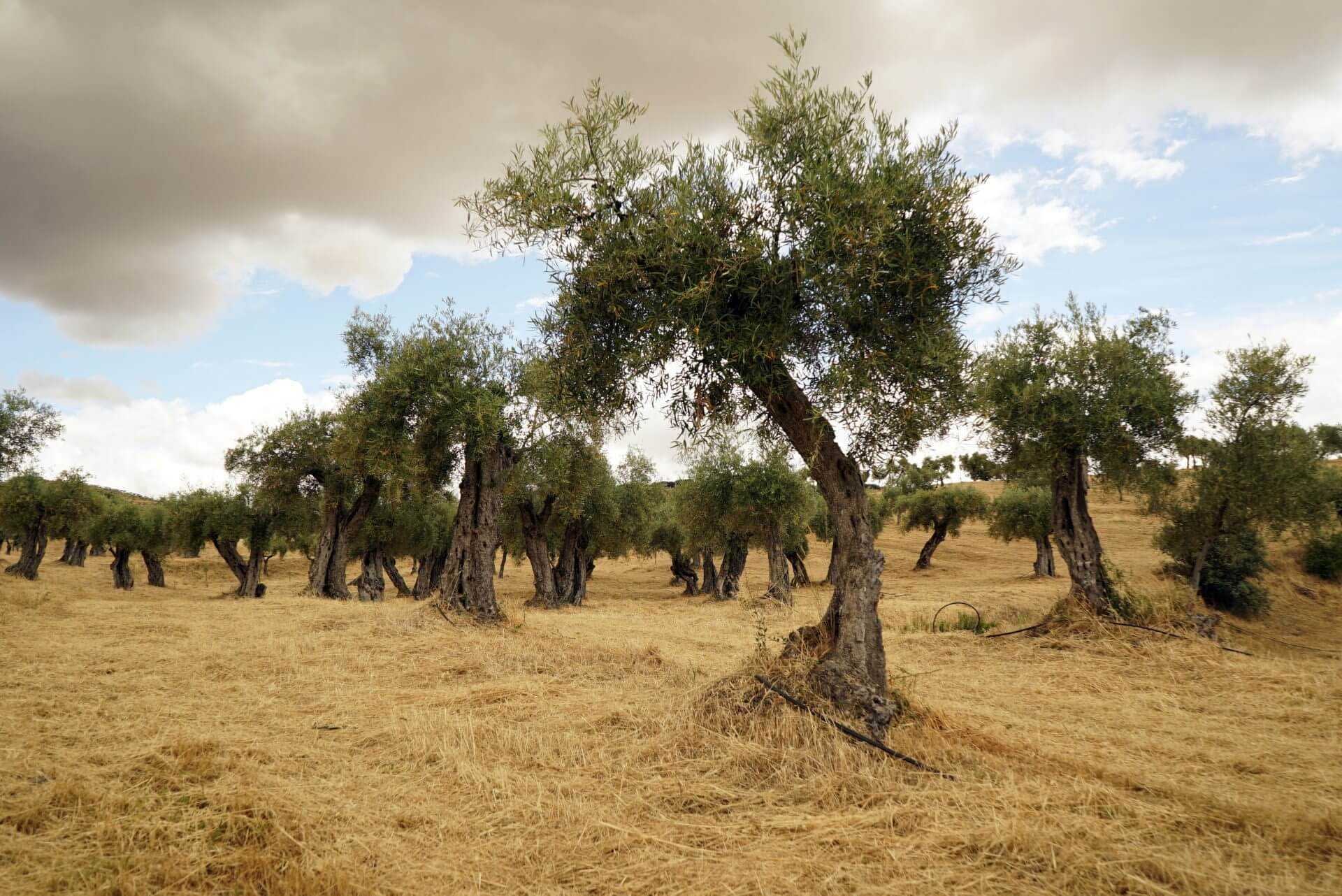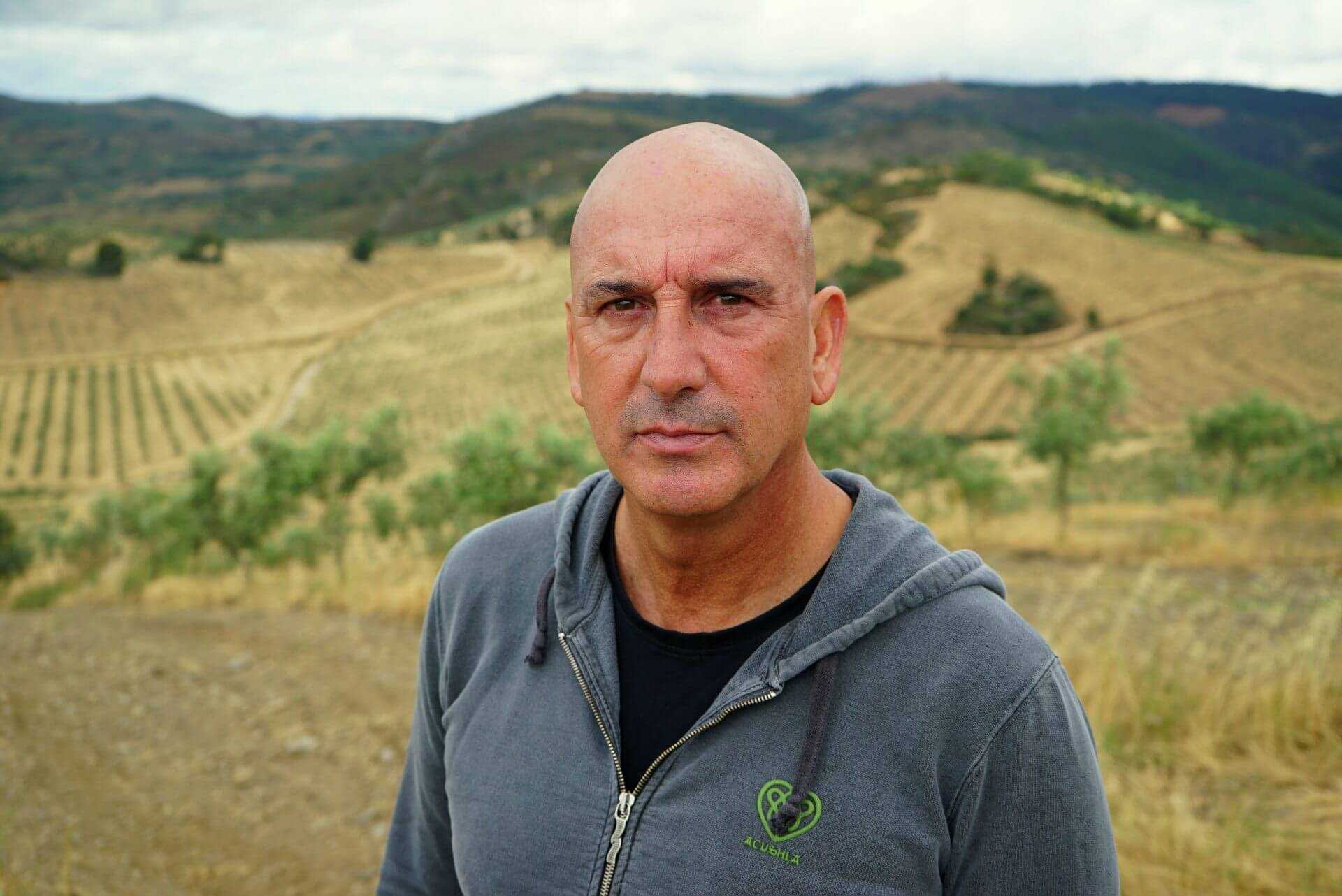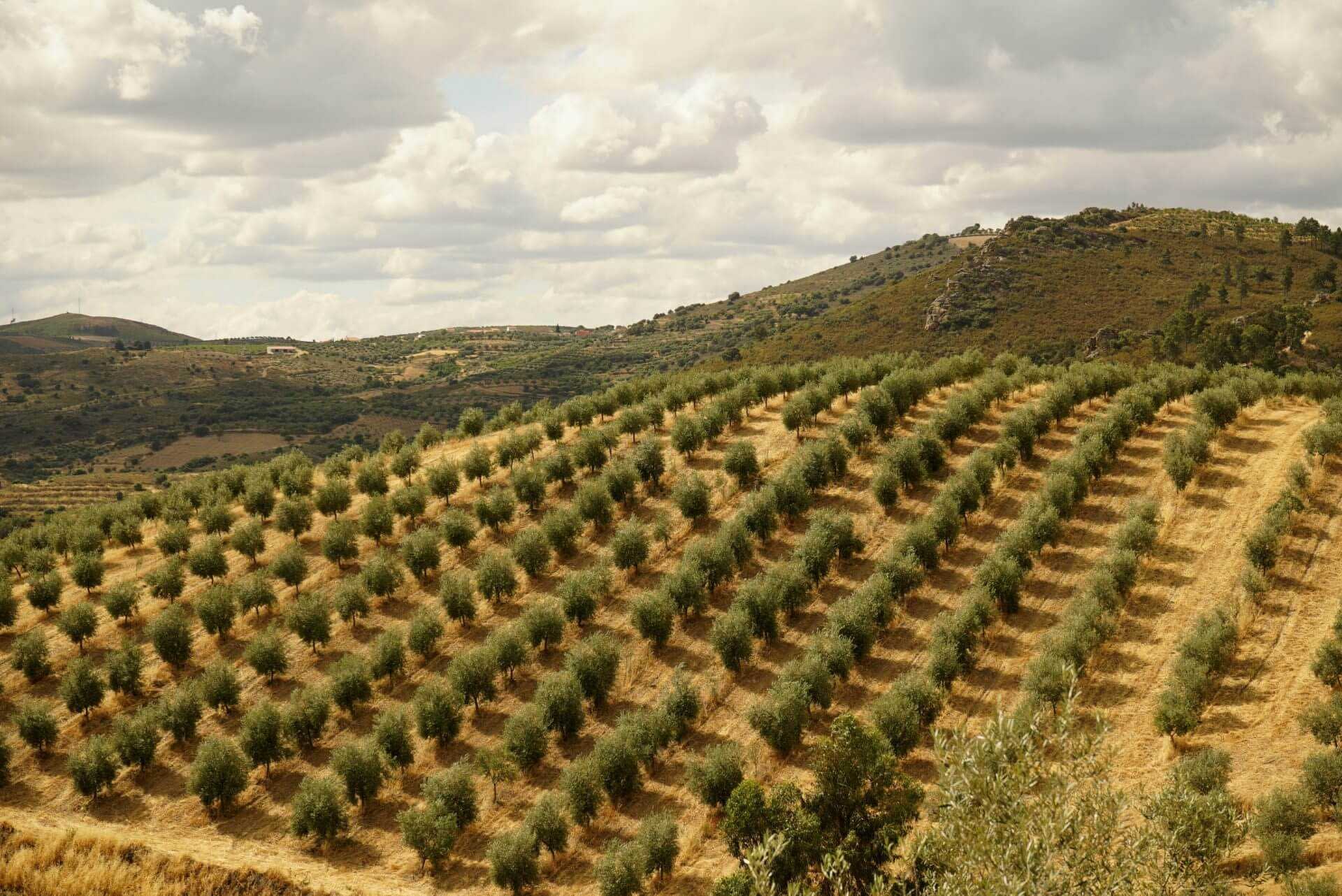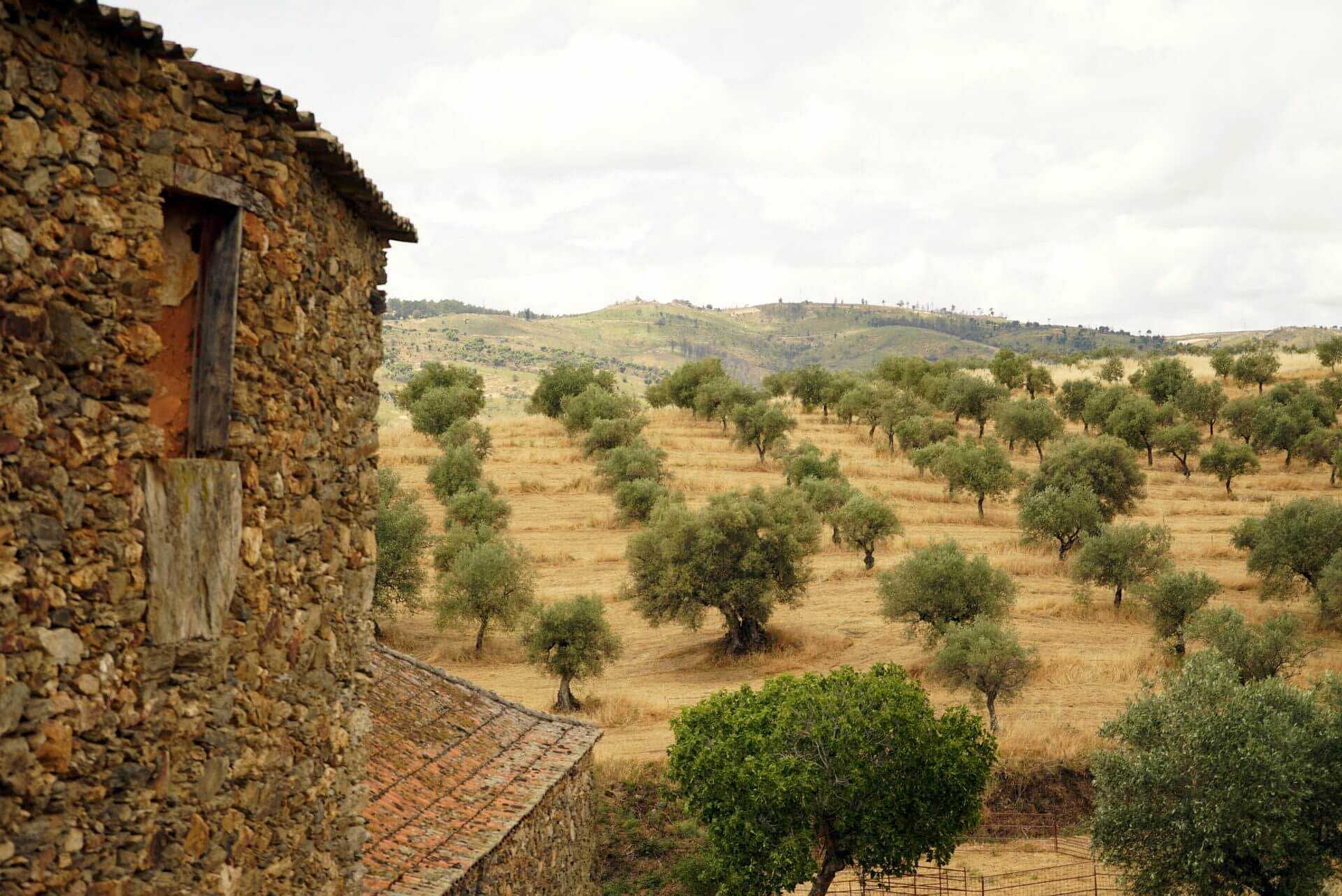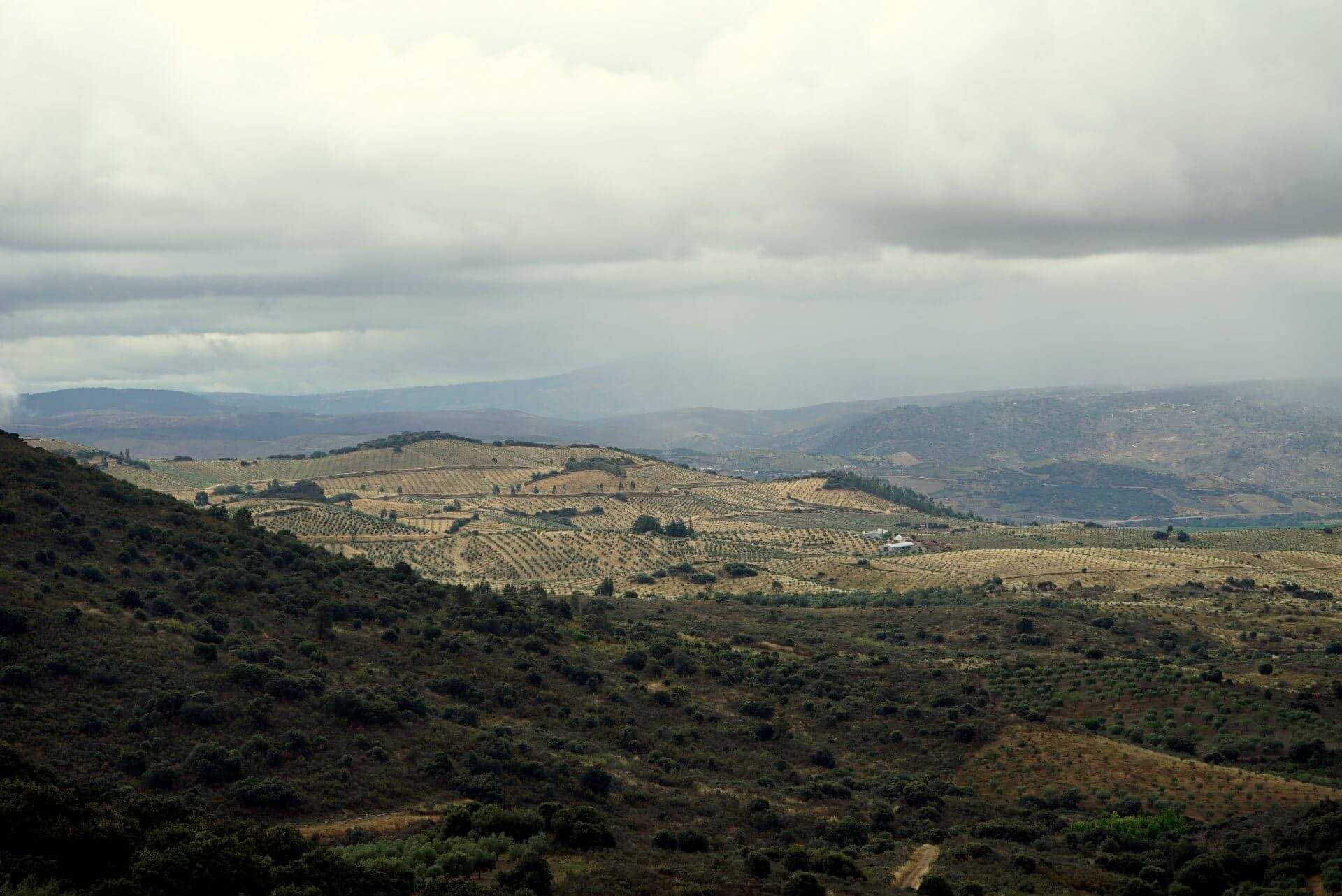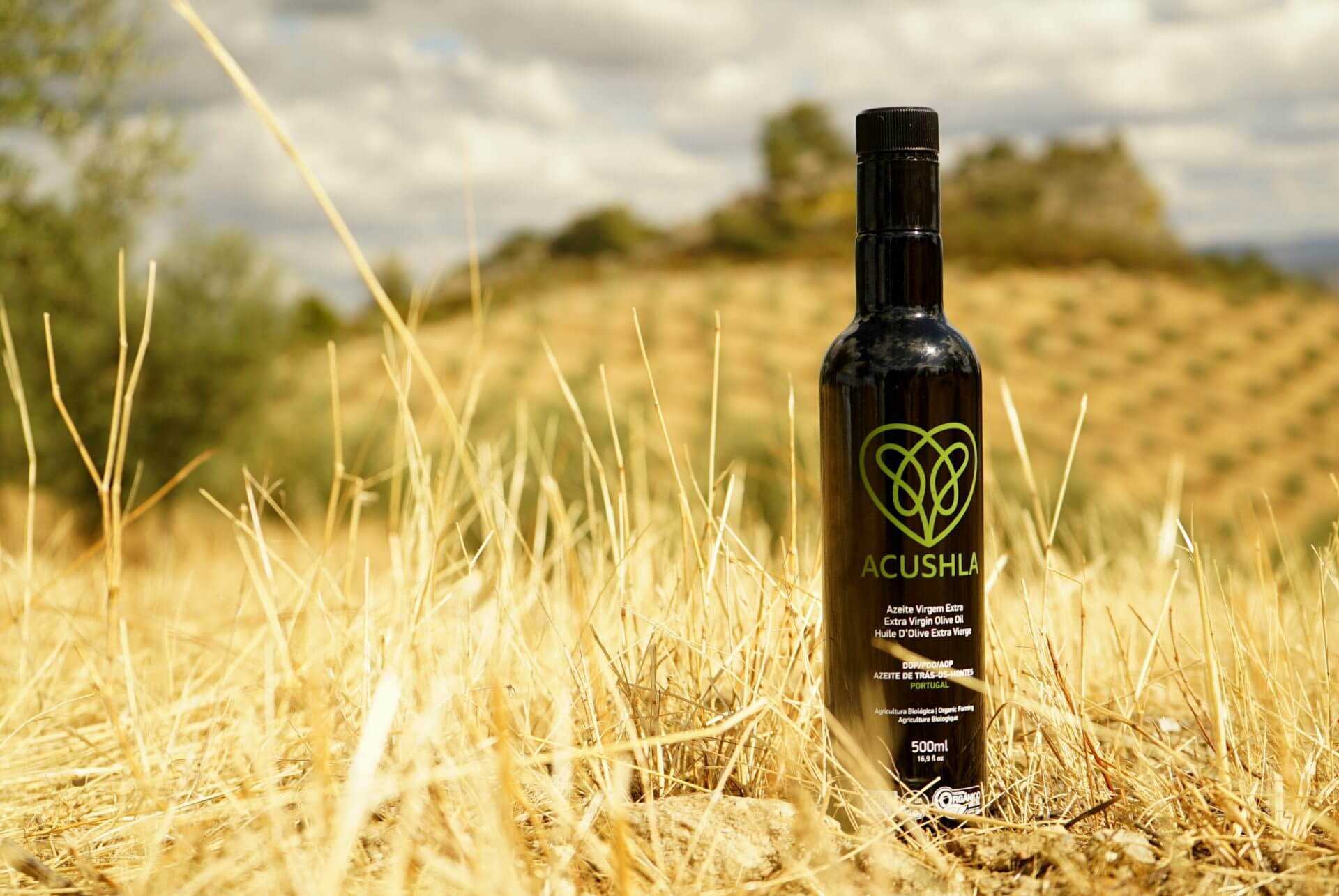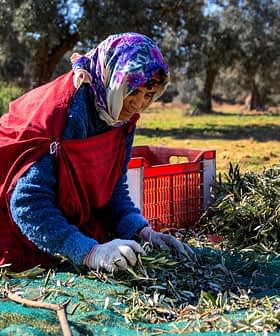Finding Balance Among the Olives
Life is slower on the farm for fashion entrepreneur Joaquim Moreira, who produces the award-winning olive oil brand Acushla. "Fashion is an engaging sector. But now, I feel more passionate about olive oil."
 Joaquim Moreira, owner of Acushla (Photos by Pablo Esparza for Olive Oil Times)
Joaquim Moreira, owner of Acushla (Photos by Pablo Esparza for Olive Oil Times)“Being here in the olive grove gives me years of life. Being away in the fashion business takes them away,” Joaquim Moreira said.
He is the founder and owner of Acushla, one of the main producers of organic olive oil in the region of Trás-os-Montes, in Northeast Portugal.
Farming is good for your body and for your soul.
For 30 years, Moreira has worked in the fashion business. In 2004, he felt the “call of nature” and decided to dive into the olive oil sector.
“Maybe it had something to do with that that I grew up seeing my father working the land in our village near Porto,” he said.
“Fashion is an engaging sector. But now, I feel more passionate about olive oil,” he added.
Acushla — a word of Celtic origin which means “beat of my heart” — won Gold and Silver Awards at this year’s edition of the NYIOOC World Olive Oil Competition and two more Gold Awards in 2018 and 2017.
“Farming is good for your body and for your soul,” Moreira told an Olive Oil Times reporter as he drove his all-terrain car up and down the steep slopes of his 300-hectare estate in Vale Frechoso — a small village in the municipality of Vila Flor.
This is the heart of the Terra Quente “hot land,” the part of Trás-os-Montes where olive groves dominate the landscape. By contrast, in the Terra Fria Transmontana, or “cold land,” chestnuts are the main crop.
The Acushla farm, as most olive groves in the region, is a rugged place. Growing olive trees and producing organic olive oil here, Moreira suggests, is not easy.
However, he points out, this kind of farming was in his mind from the very first moment.
“I think these days we shouldn’t think only about the profit, but in the long term, about our kids and we must be sustainable. It is our obligation as farmers to do something for the world,” Moreira said.
The estate currently has around 200 hectares of olive groves, 15 of which are centenary olive trees, while the rest are new plantations. But the landscape here must have looked very different here 15 years ago.
Back in 2004, when Moreira bought this lands, most of the area was covered by eucalyptus, an alien tree widely spread in Portugal, where it was introduced as a source of cellulose for the paper industry.
“The first thing we did was to cut down all the eucalyptus,” Moreira explained. “I’m a fighter against eucalyptus, they have ended with all autochthone plants.”
Also, the highly flammable eucalyptus was seen as one of the main factors that contributed to the spread of the deadly wildfires that left 66 casualties and devastated almost 45,000 hectares in central Portugal during the summer of 2017.
Most of the eucalyptus in Acushla were replaced by local olive cultivars such as Verdeal Transmontana, Madural and Cobrançosa,” which is also cultivated in other regions of Portugal.
“The varieties from this region have unique qualities and are very well adapted to this land,” Moreira said.
“Each of them has a special taste and characteristics. Verdeal Transmontana is very bitter and it’s good to extend olive oil’s life without losing quality. Madural is probably the most balanced variety we have here, while Cobrençosa, on top of being well balanced, is the most productive one. Cordovil is very similar to Madural,” he explained.
Last year, Portugal produced 132,000 tons of olive oil, according to data from the International Olive Oil Council.
The Iberian country is the seventh-largest producer in the world after Spain, Italy, Greece, Tunis, Turkey and Morocco.
Trás-os-Montes, which literally means “beyond the mountains,” is Portugal’s second producing region, only after Alentejo.
In spite of that, most of the olive groves in this mountainous region are planted the traditional way — keeping a longer distance between trees than in modern plantations — as super-intensive olive groves are almost impossible to grow here.
This has been a traditionally isolated area, heavily affected by migration and depopulation. “This region has lost almost fifty percent of its population in the last decades,” Moreira pointed out.
“I think initiatives like ours help retaining population here. We have just 10 workers — we are not a big employer — but we try to do our part, even if it’s small,” he added.
When asked how he sees the future of his project, Moreira is optimistic.
“In the future, I would like to leave the fashion business and be dedicated just to this. My dream is to develop Acushla more. I don’t expect to have more area or more olive trees. I expect to further refine the quality of the olive oil,” Moreira said.


